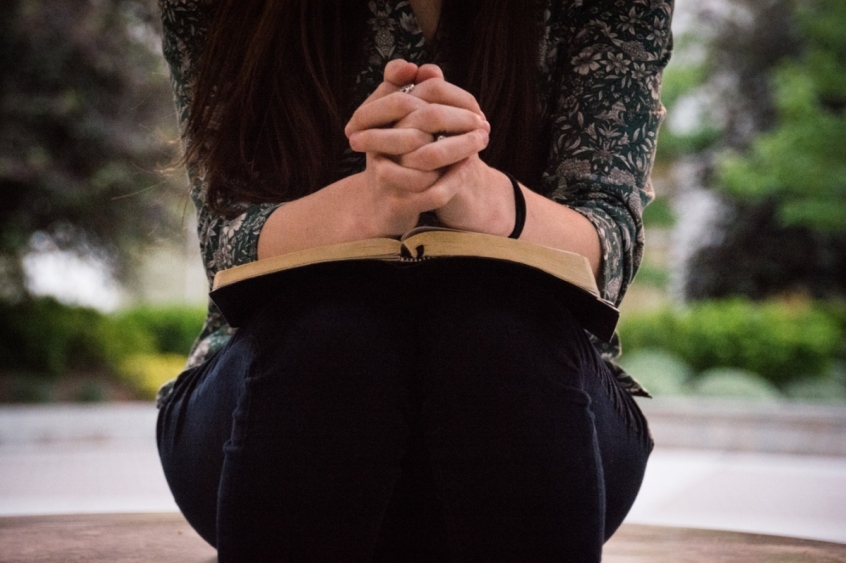
Our church has been working through a series on Exodus and at the end people were invited to submit questions to be discussed during the service. We had some really difficult ones – including one about chapter 32 v 14, where we are told God "relented", or in some versions "changed His mind" - "Then the LORD relented and did not bring on his people the disaster he had threatened."
"Can we really change God's mind?" the questioner asked.
It would have been so easy to have omitted the query, but I'm glad it wasn't. Many theologians have commented and spoken about this, and if you want to know more – just google it to find out how to think it through more. Suffice to say, there are mixed opinions!
What I want to discuss is not the question of whether we can sway God's thinking when we pray, but all that this question masks in the passage - the way Moses talks to God about this threat of death on the Hebrews, and what appears to be his sheer audacity as he pleads for the lives of his people.
I want to look at what this can teach us about how we pray today.
It just so happens my hubby was doing the Bible reading the day this chapter was preached on, and he had great fun reading the interaction between Moses and God. As God speaks, He refers to the Hebrew people as Moses's people, the ones 'Moses' brought out of Egypt. When Moses starts his reply he refers to them as 'Your' people, whom 'You' brought out of Egypt.
It feels like parents referring to a badly behaved child as 'Your child'!
But is Moses being rude and audacious in how he speaks to God? I don't think so. He's not setting himself above God; he's quoting Him.
He's taking what God has said and done in the past, His promises and His actions, and placing them as evidence before Him. Not 'reminding' Him, but stating documented facts.
Even though God said to Moses that He would now make a great nation from him, Moses ignores this and humbly fights for the lives of the Hebrews instead. He shows he is well qualified as a leader by putting the lives of his nation ahead of his own fame. If this was a test of that leadership, he nailed it.
As we read this, sometimes our familiarity turns the exchange into a bland every day dialogue. But this is God Moses is talking to, and not just talking; he's pleading for his people. He knows God's power, but he carries on regardless.
Time and time again in the Bible we see prayers in the same vein – quoting God's promises, quoting scripture and yelling at Him about the unfairness of a situation.
But what about decorum and respect? This is an awesome God we are talking too after all!
Yes we are, but He is also Father God. We can approach Him because of Jesus, with the help of the Holy Spirit, and we can talk to Him about anything.
Jesus tells the story of a persistent widow in Luke 18:1-8 where she kept going to the bad judge, who eventually gave in. In explanation, Jesus tells the people listening: "God's people shout to him night and day, and he will always give them what is right."
The way I was taught about prayer by people with different ideas made it a puzzling paradox; I was taught that when I prayed I was approaching the King's throne, that I needed respect and a well ordered prayer time by following a set pattern. But at the same time I was also taught that because of Jesus, I could wander into His presence anytime I wanted with just a few words. I can see how that works now, but to a young mind it was confusing.
I was also taught about the persistent widow, the lesson being "just keep praying". The exchange between Moses and God was never used to teach me about prayer, probably because it raised too many questions. I think it was a valuable lesson missed. If I had prayed like that in my Sunday school, I'm sure I would have been told off for my insolence! But I think children need to know that they too CAN pray like this, and we need to model it to them.
As I've grown, and looked at stories like this one in Exodus, it's never occurred to me to probe the whole 'sovereignty' question. But I have been transfixed by how Moses prayed, and how God responded. Moses's whole being was wrapped up in that conversation. It came from the depth of his soul.
I've often prayed in this way. Not because I'm am an insolent individual, but because sometimes I need reminding of God's promises. Because, as I pray like this I get to know Him more and I grasp hold of His promises afresh whilst I grow in faith.
Sometimes I feel my prayers are more like a battle ground as I get caught up in the injustice of some situations. This way of praying has come out of a difficult childhood, where I have shouted at God, telling Him that something was not fair and that I'd had enough - usually quoting a memory verse to prove it!
Maybe we should pray like this more often – straight from the depths of our souls, following Moses' pattern and, to quote Tennyson, "Battering the gates of heaven with the storms of prayer."
Kay Morgan-Gurr is Chair of Children Matter and Co-Founder of the Additional Needs Alliance, part of the Evangelical Alliance Council. For more, www.kaymorgangurr.com and on Twitter @kaymorgan_gurr













